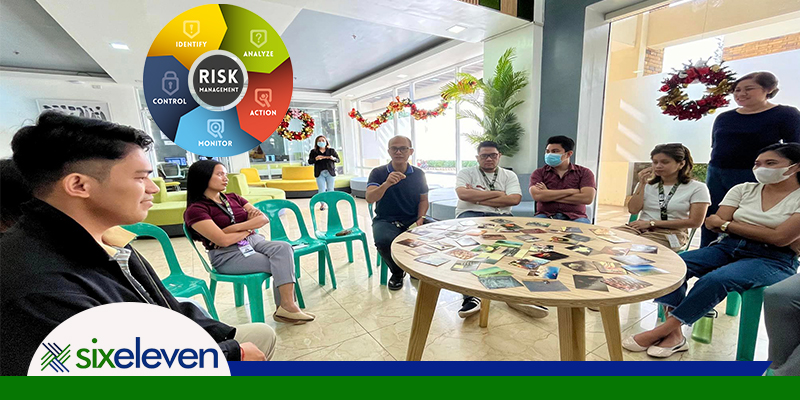How To Prepare Your BPO Company For Emergency Situations
Unexpected catastrophes can disrupt operations and offer substantial hurdles to sustaining company continuity in today’s fast-paced business context. Preparedness for emergency events is not only a good practice for Business Process Outsourcing (BPO) organizations that deliver crucial services to clients; it is a must.
A comprehensive emergency preparedness strategy helps protect your company’s reputation, clients, and employees from natural cyberattacks and health issues. This blog will project crucial ways to prepare BPO organizations for emergency scenarios.
GET FREE QUOTE
Send us your requirements and we will get back shortly.
1. Risk Assessment and Scenario Planning
Conducting a thorough risk assessment is the first step in preparing your BPO company for emergencies. Identify potential threats to your operations, such as natural disasters, cyber-attacks, pandemics, or political upheaval. To prioritize your preparedness actions, assess the severity of each danger and its chance of occurrence.
Understanding the dangers that could affect your BPO company is the first step in emergency planning. Conduct a comprehensive risk assessment to identify catastrophes such as natural disasters, technology failures, and security breaches. Create scenarios based on distinct emergencies once you’ve identified the risks to assist you in comprehending the potential impact on your operations, staff, and clients.
2. Develop a Comprehensive Emergency Response Plan
In critical conditions, a well-defined emergency response plan serves as a road map for your firm. This plan should define important people’s roles and responsibilities, communication protocols, evacuation procedures, and methods to secure critical data and systems and establish a thorough strategy, including representatives from all departments.
3. Establish Effective Communication Channels
During an emergency, open and transparent communication is critical. Establish a clear communication strategy to transmit information to employees, clients, and other stakeholders. To keep everyone informed, use several communication channels such as emails, instant messaging, and social media.
Communication is critical during an emergency. To promptly convey information to employees, clients, and stakeholders, implement a robust communication strategy that includes several channels – email, text messages, and phone calls. Appoint a communication coordinator to keep everyone informed and up to date during the crisis.
4. Backup Systems and Data
BPO firms rely significantly on technology to deliver services in the digital age. Implementing backup systems and performing frequent data backups are critical for minimizing technical failure or cyberattacks. Consider using cloud-based solutions to store crucial data off-site, making it easier to access in an emergency.
When there are emergencies, having the necessary technology tools and a dependable infrastructure is critical. Cloud-based services, virtual collaboration platforms, and remote access solutions can enable your team to keep working even if your physical office space is unavailable.
5. Remote Work Readiness
Prepare your firm for eventualities involving remote employment. Ensure that employees have the appropriate equipment, secure connections, and access to critical apps to complete their tasks remotely. Drills or simulations can assess remote work capabilities and address any potential issues.
During an emergency, your regular personnel may require assistance to carry out their responsibilities. Consider creating a backup workforce to cover vital duties in the event of a staff shortage—Cross-train people to have adaptable abilities that can be used in many areas if needed.
6. Employee Training and Awareness
Employees are the backbone of every organization, and their readiness is critical for crisis management success. Regularly hold training courses on emergency measures, evacuation procedures, and remote work practices. Please encourage them to keep informed and communicate developments with colleagues during a crisis.
Get 2021 Outsourcing Guide
Find out how SixEleven can help you with outsourcing
A strong emergency preparedness plan is only as good as those who carry it out. Train your staff on emergency procedures, evacuation routes, and their duties in various situations. Drills and training sessions regularly can assist in building confidence and ensure a quick response when needed.
7. Collaborate with Clients
Your customers rely on you and will appreciate your dedication to ensuring business continuity during catastrophes. Work with clients to communicate components of your emergency preparation strategy relevant to their business. Transparency in your preparedness activities can help to build confidence and strengthen client relationships.
Maintain an open line of communication with your clients and business partners about emergency preparedness procedures. Seek strategies to connect your contingency plans with theirs to enable the smooth continuation of business operations in the event of a disaster.
8. Regularly Update and Test the Plan
A well-designed business continuity plan guarantees that your clients receive continued service. It should include procedures for alternate working arrangements, backup, communication methods, and temporary infrastructure setups. Update and test the plan regularly to guarantee its effectiveness and relevance.
Your disaster preparedness plan should reflect the dynamic nature of the corporate world. Review and update the strategy regularly if new risks surface or your company’s activities change. Drills and simulations can test the effectiveness of your plan and discover areas for improvement.
Well…
Although no organization is immune to calamities, proper planning, and preparation can dramatically reduce the impact on your BPO company. Conducting risk assessments, building robust business continuity plans, and prioritizing staff safety will help you form a resilient organization that can effectively handle emergencies. Remember that preparation is the key to surviving the storm and emerging on the other side.
While emergencies are unforeseeable, they can be reduced through careful planning and preparation. You may position your firm to traverse crises with resilience and minimal disruption by conducting risk assessments, building a detailed emergency response plan, ensuring good communication, and routinely testing the plan’s efficacy. Remember that preparedness is a commitment to your staff and clients and the long-term viability of your BPO operations.
By following these best practices, your BPO firm will be able to withstand hardship and continue to provide outstanding services to your clients, guaranteeing their faith and confidence in your organization is well-founded. Together, we can prepare, defend, and prosper. We can deal with any emergency.
#HowToPrepareYourBPOCompanyForEmergencySituations
GET FREE QUOTE
Send us your requirements and we will get back shortly.
#SixElevenGlobalServices
#QualityExperienceTheFirstTimeEveryTime





